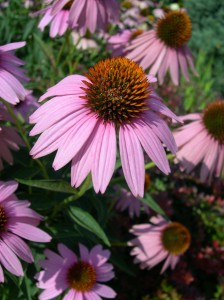
More evidence that low-calorie sweeteners are bad for your health
Studies show that artificial sweeteners can raise the risk of hypertension, metabolic syndrome, type 2 diabetes and heart disease, including stroke.

continued from page 8>>
Feverfew – for the treatment of migraine
The main uses of this ancient herb are in the treatment of fever, migraines and arthritis. Studies tend to be small but nevertheless feverfew appears to be effective, particularly in the prevention of migraine.
In those with intractable migraine, as many as 70% improved while taking the herb and as many as one in three had no further attacks. The most famous study was conducted at the University of Nottingham comparing feverfew to a placebo over a period of four months.
Those taking the feverfew experienced a 24% drop in the number of attacks they experienced, while the placebo remained unchanged. It is thought to work by inhibiting the release of blood vessel dilating substances and by inhibiting the production of inflammatory substances and by re-establishing good blood vessel tone.
Dose
How well it works depends on adequate levels of its active ingredient parthenolide. In clinical trials the standard parthenolids content was 0.4%.
In a study by the City of London Migraine Clinic, published in the British Medical Journal participants took on capsule containing 25 mg of the freeze dried herb twice daily; in another 82 mg of the dried powdered leaves was used once daily. These low doses are for prevention.
During an attack a higher dose of between 1-2 grams may be necessary.
Take care
It is generally well tolerated but taking NSAIDS (such as ibuprofen) may negate the effectiveness of this herb. It may also alter bleeding time and should not be used concomitantly with the blood thinning drugs such as warfarin.

Please subscribe me to your newsletter mailing list. I have read the
privacy statement